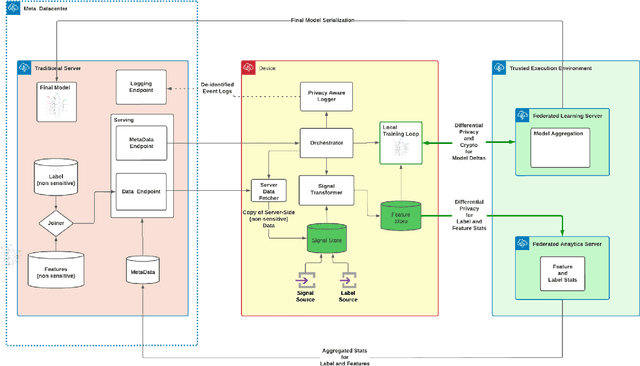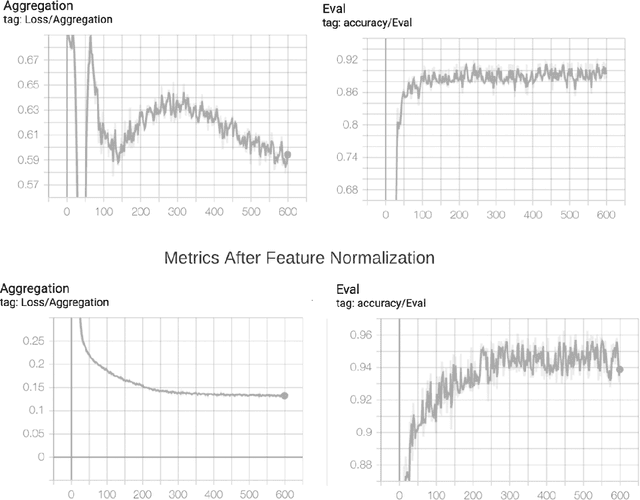Applied Federated Learning: Architectural Design for Robust and Efficient Learning in Privacy Aware Settings
Paper and Code
Jun 07, 2022


The classical machine learning paradigm requires the aggregation of user data in a central location where machine learning practitioners can preprocess data, calculate features, tune models and evaluate performance. The advantage of this approach includes leveraging high performance hardware (such as GPUs) and the ability of machine learning practitioners to do in depth data analysis to improve model performance. However, these advantages may come at a cost to data privacy. User data is collected, aggregated, and stored on centralized servers for model development. Centralization of data poses risks, including a heightened risk of internal and external security incidents as well as accidental data misuse. Federated learning with differential privacy is designed to avoid the server-side centralization pitfall by bringing the ML learning step to users' devices. Learning is done in a federated manner where each mobile device runs a training loop on a local copy of a model. Updates from on-device models are sent to the server via encrypted communication and through differential privacy to improve the global model. In this paradigm, users' personal data remains on their devices. Surprisingly, model training in this manner comes at a fairly minimal degradation in model performance. However, federated learning comes with many other challenges due to its distributed nature, heterogeneous compute environments and lack of data visibility. This paper explores those challenges and outlines an architectural design solution we are exploring and testing to productionize federated learning at Meta scale.
 Add to Chrome
Add to Chrome Add to Firefox
Add to Firefox Add to Edge
Add to Edge